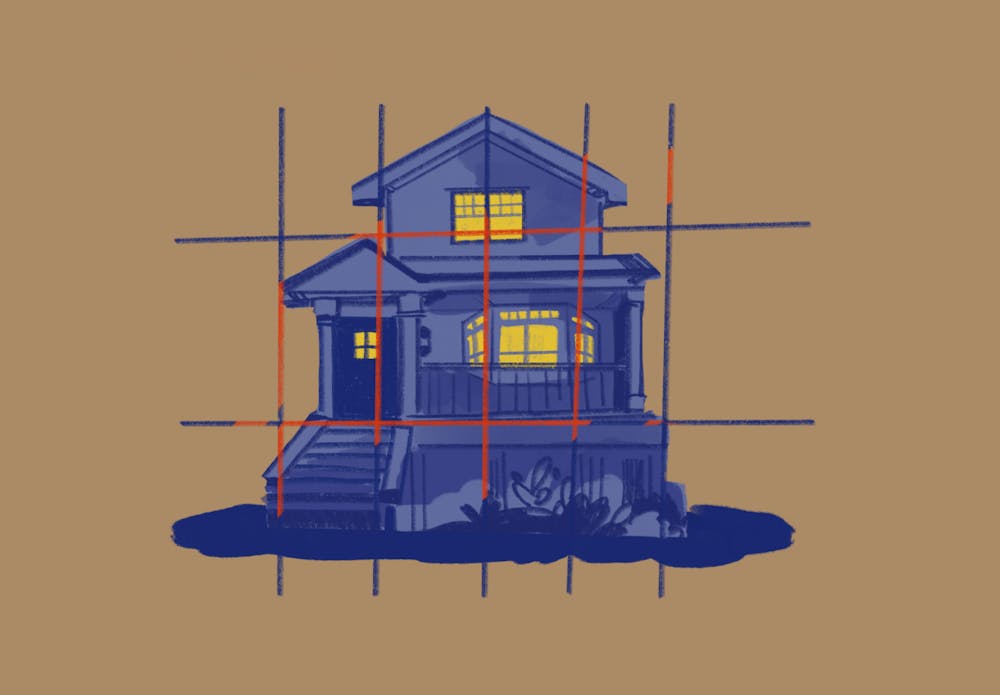I’ve spent a total of five weeks in mandated hotel quarantine while traveling to my home in Hong Kong: two weeks last December and three weeks this past spring. I’ve been deplaned twice—both times due to COVID–19 test–related issues but never because of a positive test result. The first time, I needed a negative COVID–19 test within 72 hours of leaving the United States—my test was dated 72 hours and 20 minutes. On the second occasion, it was because the COVID–19 Testing Center at Jefferson Airport failed to provide me with a “Certificate of Accreditation," a piece of paper that said the testing lab had government approval. It didn’t matter that I was tested at the airport center that was exclusively intended for travelers. It was also of little consequence that I was fully vaccinated.
I conceptualized my experience in numbers. The number of days I had left on my quarantine sentence, for instance. I would wave to my parents from the window of my hotel room. To me, they resembled little matchstick figures frantically throwing their arms up and down to maximize visibility. I watched life move past me from the eerie solitude of a five–by–five room. Ships sailed nearby, miniature props leaving behind trails of white foam as they zipped to and from ports. I conceived of everything outside my window as “props,” because nothing outside my door seemed real. Last fall, my dog died on my seventh day in quarantine, proving that as much as my world had stopped, life—or the lack thereof—kept going without me.
Six. That’s how many hours I spent at the Hong Kong airport this past spring, being shepherded through arbitrary rows and makeshift dividers, waiting for my onsite test results. All of the passengers had to wear lanyards around their neck—an identification card of which group they belonged to. Each station had a designated function. One would check my documents, while the next would slap me with a plastic wristband designed to monitor my location in quarantine. I moved through eight different queues and answered the same ten questions. To a random bystander, we must’ve seemed like cattle being lined up for transport. “Kafkaesque,” a term used to define a bizarre, nightmarish, and illogical situation, soon became my go–to word of choice to describe the experience.
I thought a lot about what it meant to be a person, what it meant to be a citizen, what it meant to really belong somewhere. I’m not an American citizen, but to the Hong Kong authorities, I was, for all intents and purposes, American, branded a Class C traveler subject to the maximum quarantine penalties. Whenever I’m in Philadelphia for college, I’m reminded of how often that isn’t true: My “un–American” insurance is rejected from health care clinics and goes unrecognized at CVS.
Twelve. That’s the number of months my Hong Kong visa is valid for. By my own estimation, unless things get better, I will not be granted another visa to visit this December. In a way, I’ve been given permanent outsider status in both of the countries I live in. The bounds of sovereignty extend far enough to exclude me, but fall short of letting me in.
More than anything, I want to be able to go home. I want, as so many other people do, for things to get better, for the last year and a half to finally come to an end. My experiences pale in comparison to the horrors that others have had to endure, but my plea remains the same. I can’t control what anyone else does, but what everyone else does inadvertently affects me anyway. It’s odd to have a complete lack of control over the things that seem so intensely personal. I sit on the border between one culture that prioritizes the collective at the cost of the individual and another that does the exact opposite.
Every day, I read more news articles about the “unprecedented” times we’re in. And every day, that gets a little more cumbersome to digest. I think we all want things to return to “precedented,” but that won’t happen unless there’s a concerted effort to do so.
I’m thankful because most of the people I know are vaccinated and encourage others to do the same. At the same time, I know that there are a lot of people who refuse to get the vaccine and act irresponsibly. I’m not exactly qualified to address all of the concerns around the vaccine, but there are a plethora of resources that do. I don't expect my own (privileged) experiences to completely change someone’s worldview.
All I can hope for is that people continue to share their stories, and that, along the way, we develop compassion for circumstances we can’t understand. Beyond knowledge and education, I hope for empathy. I anticipate that things will have to get a lot worse for our sense of solidarity to get a lot better, but every day, I pray that I’m wrong. I hope that the phrase “misery loves company” becomes an outdated aphorism. I hope for a softer worldview that extends far beyond ourselves, one that prioritizes empathy and care above all else.







